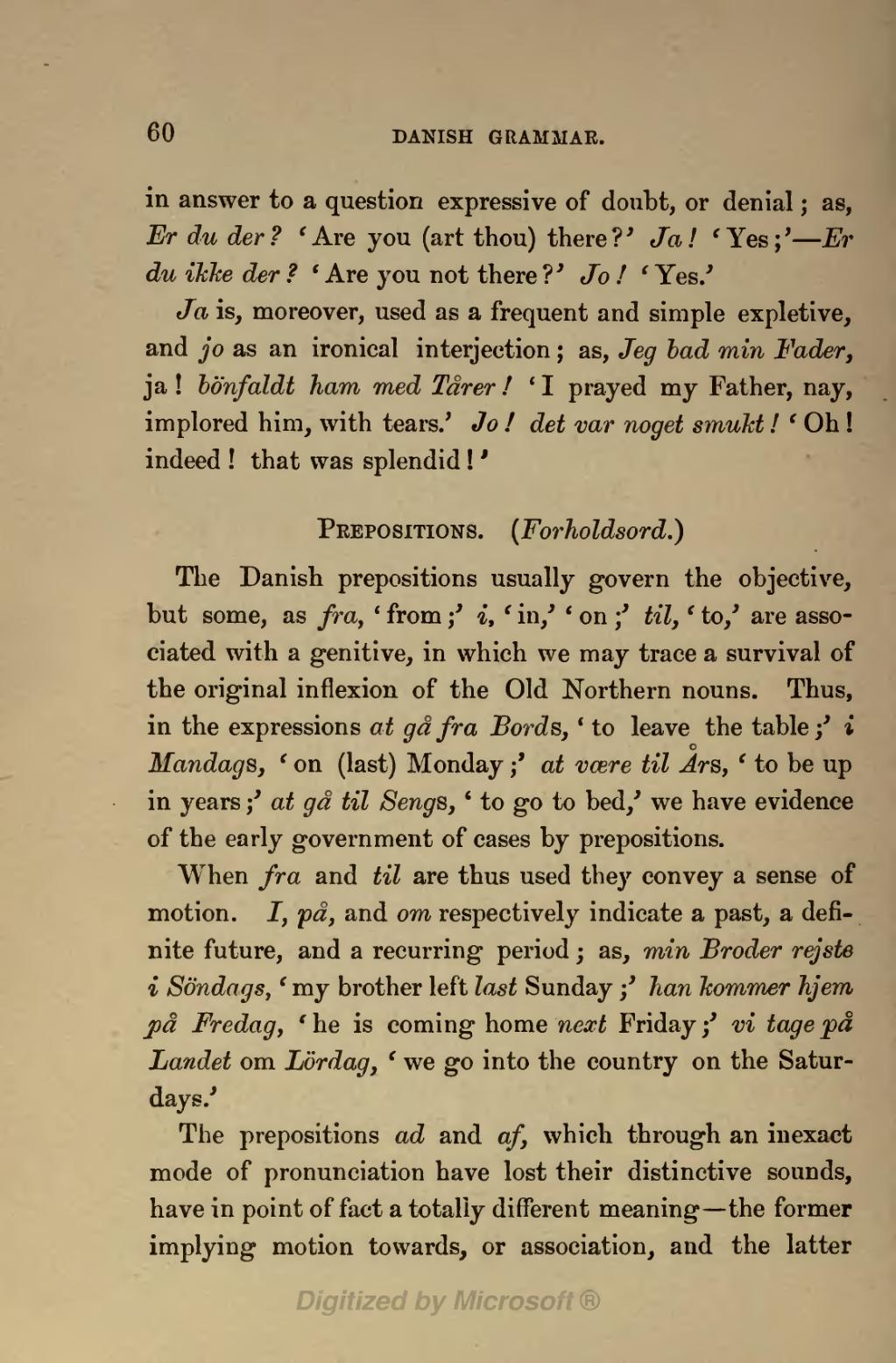in answer to a question expressive of doubt, or denial; as, Er du der? 'Are you (art thou) there?' Ja! 'Yes;'—Er du ikke der? 'Are you not there?' Jo! 'Yes.'
Ja is, moreover, used as a frequent and simple expletive, and jo as an ironical interjection; as, Jeg bad min Fader, ja! bönfaldt ham med Tårer! 'I prayed my father, nay, implored him, with tears.' Jo! det var noget smukt! 'Oh! indeed! that was splendid!'
Prepositions. (Forholdsord.)
The Danish prepositions usually govern the objective, but some, as fra, 'from;' i, 'in,' 'on;' til, 'to,' are associated with a genitive, in which we may trace a survival of the original inflexion of the Old Northern nouns. Thus, in the expressions of at gå fra Bords, 'to leave the table;' i Mandags, 'on (last) Monday;' at være til Års, 'to be up in years;' at gå til Sengs, 'to go to bed,' we have evidence of the early government of cases by prepositions.
When fra and til are thus used they convey a sense of motion. I, på, and om respectively indicate a past, a definite future, and a recurring period; as, min Broder rejste i Söndags, 'my brother left last Sunday;' han kommer hjem på Fredag, 'he is coming home next Friday;' vi tage på Landet om Lördag, 'we go into the country on the Saturdays.'
The prepositions ad and af, which through an inexact mode of pronunciation have lost their distinctive sounds, have in point of fact a totally different meaning—the former implying motion towards, or association, and the latter
